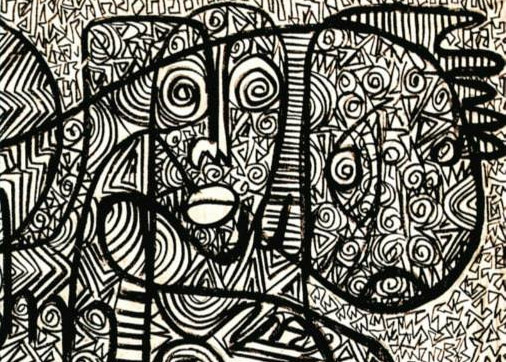This May, the Publications Unit is officially releasing Obsidian, a journal dedicated to African and diasporic African literature, art and scholarship.
The journal, which began in 1975, is finding a new home at Illinois State. Its journey here speaks to the dedication of the University to diversity, said the journal’s new editor, Illinois State Associate Professor of English Duriel Estelle Harris.
“We want this to be more than a journal – but a force and a voice,” said Harris, who has served on the masthead as a poetry editor for Obsidian since the late 1990s. Now called Obsidian: Literature & Arts in the African Diaspora, the journal will continue publishing poetry, fiction, drama and scholarship by contemporary writers. Yet Harris hopes to breathe new life into the journal, thanks to the support of the University.
“We want to increase emphasis on African artists and scholars of African arts internationally,” she said. “We’re witnessing renewed hostility toward Africans and African Americans. What we need now is more dialogue, more conversation and intervention that will lead to social justice.”
Harris approached the Department of English, the College of Arts and Sciences and the Office of the Provost for support in bringing the journal to Illinois State. “Thankfully, the University took a visionary position and demonstrated support for diversity with this initiative,” she said. “People recognize that Obsidian offers Illinois State a platform for true globalization and diversity, one of the key pillars of Educating Illinois.”
Obsidian’s connection to the strategic goals of Illinois State made the journal a natural fit with the campus, noted Dean of the College of Arts and Sciences Greg Simpson. “In Educating Illinois and the CAS Strategic Plan, diversity looms large, and the journal strongly contributes to our increased globalization efforts,” he said.
Simpson was one of the people whom Harris approached with the idea of acquiring the journal when North Carolina State University faced budget cuts which defunded the publication. The idea of adding Obsidian to the Publications Unit line-up appealed to Simpson, who knew of its reputation. “Any time a nationally recognized journal comes to Illinois State, it says something about us,” he said.
Provost Janet Krejci saw a University-wide appeal for the journal. “Obsidian has the potential to reach into so many colleges and departments – from scholars talking about African politics, culture, agriculture, business and economics, to those exploring art, writing and media dedicated to the continent,” said Krejci. “Obsidian provides a stage for Illinois State faculty to highlight their continued exploration of globalization, and our students will benefit from that.”
Students are key to the production of Obsidian, and their work on the journal will provide coveted real-world skills, said Interim Co-Director of the Publications Unit Steve Halle. “Now Illinois State students will be able to work on a truly international journal,” said Halle. “You would have to cut your teeth in the field for a long time to get that kind of experience.”
Working with Harris, Halle spent weeks redesigning the journal, which offers a departure from the Publications Unit’s traditional role. “Our work is usually supporting faculty efforts, helping them to expand the existing publications they developed,” said Halle, who is also helping Harris create an online element for the journal to feature performance work.
“We hope to bring in more drama and performance art and more visibility for avant-garde, innovative and digital literatures and arts,” said Harris, who often works across disciplines. “All of these elements will combine to position Obsidian at the forefront of conversations in the field, increasing its relevance and impact. With the journal housed here at Illinois State, we can bring the best of diasporic African creative arts to an international public. And we need venues for sustained engagement like Obsidian now more than ever, so we can move toward building a more just, equitable and life-affirming world.”


